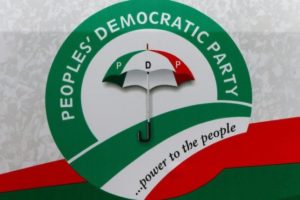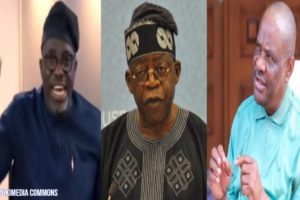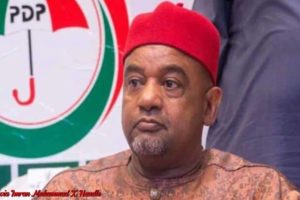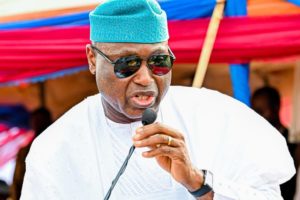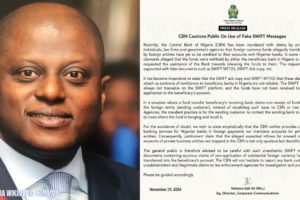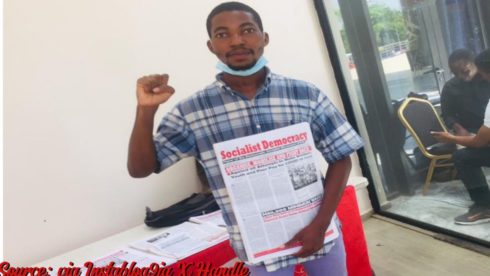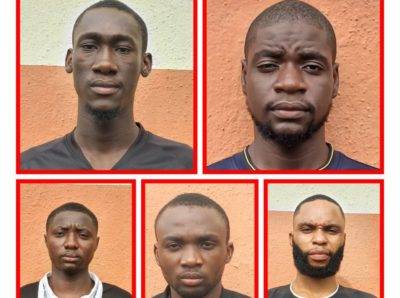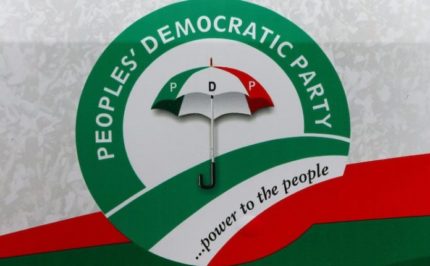The Department of State Services (DSS) has reportedly apprehended a prominent protest leader of the #EndBadGovernance protests in Abuja, marking a significant escalation in the government’s response to the ongoing demonstrations. This arrest comes as part of a wider crackdown on protest organizers, with the DSS actively tracking and surveilling key figures in the movement.
The arrest has sparked widespread concern among civil rights activists and protesters, who view it as a direct attempt to stifle dissent and silence the growing movement. This action by the DSS has raised serious questions about the government’s commitment to democratic principles and its willingness to engage in constructive dialogue with its citizens.
Protests Continue Despite Government Pressure- DSS Swings Into Action
Despite the arrest and ongoing crackdown, the #EndBadGovernance protests show no signs of abating. Demonstrators across Nigeria continue to voice their demands for an end to bad governance, economic hardship, and insecurity. The resilience of the protest movement in the face of government pressure underscores the depth of public discontent and the urgency of the issues being raised.
However, the continuation of protests has been marked by increased violence, with security forces resorting to tear gas and, in some instances, live ammunition to disperse crowds. This escalation in force has further inflamed tensions and drawn criticism from both domestic and international observers.
Government’s Mixed Response to Unrest-DSS Intervention
The Nigerian government’s approach to the protests has been characterized by a combination of forceful suppression and attempts at dialogue. While security forces have been deployed to quell demonstrations, resulting in numerous arrests and reported casualties, the government has also announced measures aimed at addressing some of the protesters’ grievances, including financial support programs for youth.
Critics argue that the government’s response has been disproportionate and ineffective, failing to address the root causes of the unrest. The use of force against largely peaceful protesters has been widely condemned, with accusations that such actions violate fundamental human rights and democratic principles.
International Community Expresses Concern
As the protests and government crackdown continue, the international community has begun to voice its concerns. Both the United States and the European Union have issued statements calling for restraint and urging the Nigerian government to respect the rights of protesters. Human rights organizations have also weighed in, demanding investigations into reported incidents of violence against demonstrators.
This international scrutiny places additional pressure on the Nigerian government to find a peaceful resolution to the crisis. It also highlights the global implications of the ongoing unrest and the potential for international intervention if the situation continues to deteriorate.
Economic Impact of Prolonged Protests
The ongoing protests and subsequent government crackdown are having a significant impact on Nigeria’s economy. Many businesses have been forced to close or operate at reduced capacity due to safety concerns and disruptions caused by the demonstrations. The uncertainty surrounding the protests has also led to a decrease in foreign investment and a weakening of the Nigerian currency.
These economic consequences add another layer of complexity to the crisis, potentially exacerbating the very issues that sparked the protests in the first place. The government faces the challenge of addressing the protesters’ demands while also mitigating the economic fallout from the prolonged unrest.
Calls for Dialogue and Reform
As the situation remains tense, there are growing calls from various sectors of Nigerian society for meaningful dialogue between the government and protest leaders. Civil society organizations, religious leaders, and moderate political figures are urging both sides to come to the negotiating table to find a peaceful resolution to the crisis.
Many are advocating for comprehensive reforms to address the underlying issues of corruption, economic mismanagement, and social inequality that have fueled the protests. The coming weeks will be crucial in determining whether Nigeria can navigate this crisis and emerge with a more responsive and accountable system of governance, or whether the country will face further instability and potential escalation of conflict.
Table of Contents
Discover more from OGM News NG
Subscribe to get the latest posts sent to your email.




